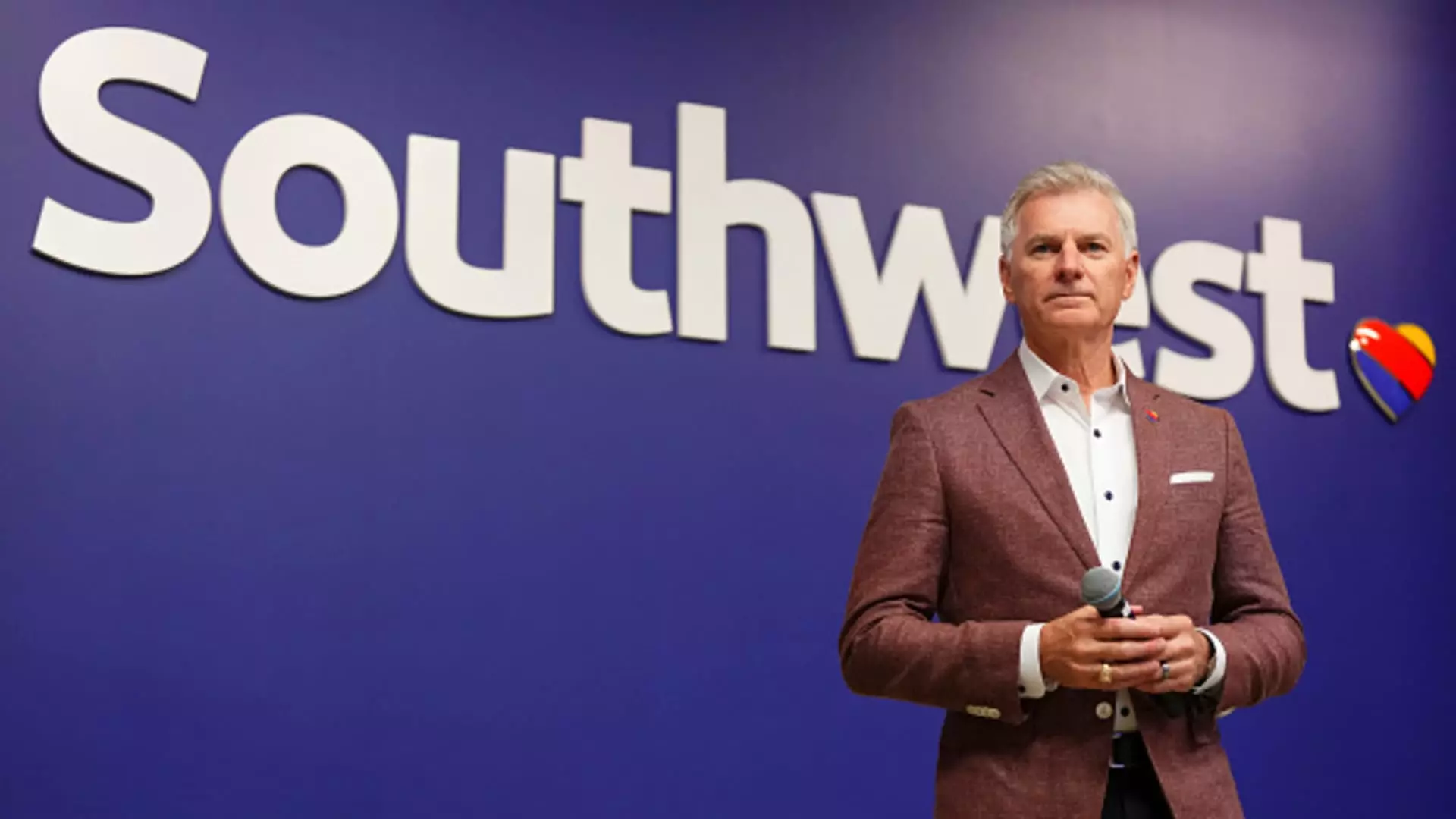In a significant move that could transform the strategic direction of Southwest Airlines, the company has reached an agreement with Elliott Investment Management, an activist hedge fund, aimed at revitalizing its leadership structure. This arrangement, which includes the appointment of six new directors, underscores the growing sentiment among shareholders and stakeholders for a fresh approach to governance and operational efficiency in a landscape increasingly dominated by competitors.
For Southwest Airlines, this deal arrives at a critical juncture. The airline, known for its low-cost structure and unique approach to customer service, has faced mounting pressure to adapt its business model and improve its financial performance. Share prices, which have lagged behind the performance of the broader S&P 500, highlight the urgent need for reform. By partnering with Elliott, which had criticized the airline’s pace of change, Southwest aims to establish a new pathway to profitability and competitiveness.
Elliott’s call for significant changes within the company’s board, including the ouster of both Executive Chairman Gary Kelly and CEO Bob Jordan, demonstrates a clear mandate for transformation. While the deal allows Jordan to retain his position, it sets a timeline for Kelly’s retirement, marking an end to an era that began more than three decades ago.
The strategic reshuffling involves adding six new directors to the existing board, gradually transitioning its composition to reflect a more modern and energetic oversight body. This move not only brings fresh perspectives into the boardroom but also reallocates decision-making power that had previously been concentrated in long-serving executives. Notable among the new nominees is former Chevron CFO Pierre Breber, who adds a significant financial acumen to the team.
This boardroom enhancement is particularly noteworthy as it represents the largest overhaul instigated by Elliott in its ongoing campaign, a clear indication that both the hedge fund and Southwest are serious about injecting new ideas and strategies into an organization traditionally resistant to change.
Historically, Southwest Airlines has maintained a course that emphasized simplicity and efficiency, often opting for a single-class cabin and open seating. However, as the airline industry evolves, with major players like Delta Air Lines embracing more premium offerings, Southwest’s reluctance to innovate raises concerns about its long-term viability.
Given that the airline has not substantially updated its operational strategies in nearly fifty years, the imminent board changes could signal a pivotal shift. Discussing potential reforms, Southwest hinted at abandoning its longstanding practices, which could include introducing enhanced seating options and diversifying revenue streams, aligning more closely with the changing preferences of travelers.
The third-quarter results released concurrently with the announcement revealed that Southwest had outperformed analysts’ expectations, a testament to the diligent cost-cutting measures, including the discontinuation of unprofitable routes. Critics, however, have pointed out that despite these adjustments, the airline still faces substantial challenges in reclaiming its standing among investors.
Looking ahead, the company’s forecasts suggest promising developments, with anticipated revenue initiatives expected to lead to an increase of $4 billion in earnings before interest and taxes by 2027. Coupled with a recently authorized $2.5 billion stock buyback program, these strategic financial maneuvers reflect a proactive approach to rebuilding investor confidence and stimulating share value.
The recent deal between Southwest Airlines and Elliott Investment Management marks a turning point for the airline. By embracing governance reform and potentially shifting its business model, Southwest stands at the cusp of a new era. While challenges remain, the commitment to revitalization articulated by both the airline’s management and its new directors bodes well for a future where innovation and agility may redefine the Southwest experience. As Gary Kelly himself stated, the promises of tomorrow’s leadership under Bob Jordan and the newly constituted board highlight optimism for Southwest’s trajectory in a competitive airline industry.

